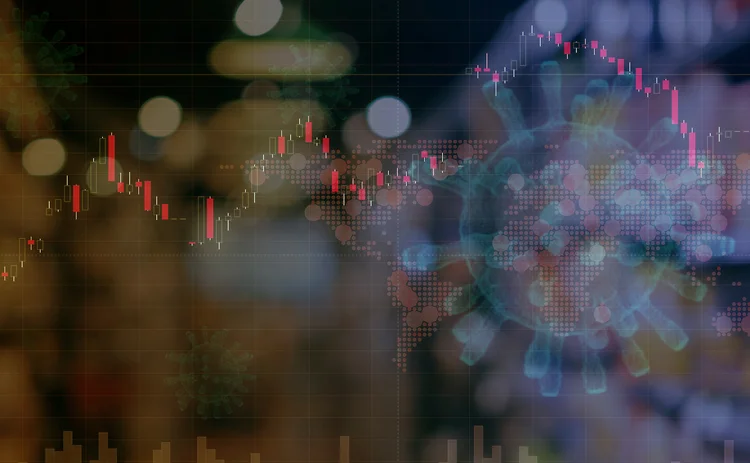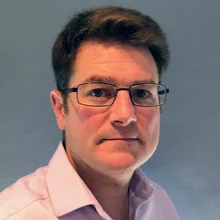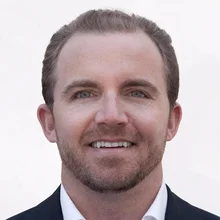
This article was paid for by a contributing third party.More Information.
KWA Analytics reaps the rewards of flexibility


The rapid expansion of KWA Analytics into new geographies and offerings is reflected in a strong performance in this year’s Energy Risk Software Rankings
Last year, as the Covid-19 pandemic caused lockdowns worldwide, commodities firms faced unprecedented volatility and disruption that tested even the most robust IT infrastructures. This has created a renewed focus on business resiliency.
Remote working also brought opportunities to upgrade systems and explore cloud-based applications, says Fred Reimer, director at commodities, energy and financial services consultancy KWA Analytics. The firm received a significant increase in enquiries from firms wanting technology transformation advisory support to move various aspects of their business to the cloud, as well as from firms wanting to improve their risk analytics.
KWA’s ability to help these clients is reflected in its strong performance in this year’s Energy Risk Software Rankings, where it gained first place in all of the technology advisory categories.
Energy Risk interviewed Fred Reimer and Phil Walsh, one of KWA Analytics’ founders, to discuss how the firm helped its clients address the events of last year, what major challenges they see coming up and how firms might best prepare themselves.
Energy Risk: With extreme events seemingly becoming more frequent, many commodities firms are focusing on systems, processes and software to support business resiliency. What are the major changes you think commodities firms still need to make?

Phil Walsh: Business resilience has been a major topic among our client base over the past year, mainly due to the impact of Covid-19. The move to remote working threw a spotlight on the importance of resilience in infrastructure and IT systems, especially for systems that were not necessarily seen as mission-critical before the pandemic (for example, remote access systems). It validated business resilience contingency plans but also exposed gaps. We see lots of unexpected issues that could derail disaster recovery, which emphasises the need for regular testing of these scenarios.
The move to remote working has also increased the threat of hacker-led security breaches, as seen in the news recently. Companies should heed this warning of what could happen to their systems. Although many are focused on tightening security and monitoring activities, they have not yet all put the necessary precautions in place. This is a concern and, in our view, regular penetration and security testing should now be the industry norm.
Energy Risk: Covid-19 created some unprecedented challenges for commodities firms last year. Did you see an increase in firms changing or upgrading their commodities trading and risk management (CTRM) software as a result? How has this impacted your work on CTRM systems implementation and management?

Fred Reimer: It was a tough year for people on a personal level, and we are really impressed and proud of our team for managing the challenges that came with Covid-19 and providing such great results for our clients. Our priority was getting all of our team [that wanted to] home as quickly as possible, because they were based all over the world. Some preferred to stay where they were. Remote working was already a part of our company DNA, so it made for a smooth transition for us and meant we could focus on our clients and their projects.
For clients that had not yet transitioned to a global way of working, the impact of Covid opened possibilities for them. Prior to that, they wanted their teams based in a specific region where a project was happening – Malaysia or Singapore, for example – and to have everyone coming onto their project site. But Covid meant they became open to working with team members in London or Houston. They could access the entire global pool of talent that KWA was able to bring to them. This was the silver lining and is how those large complex projects ended up being even more successful than they would have been.
The systems that did well with new sales and go-lives throughout Covid were the more out-of-the-box systems for projects that did not require much customisation. Cloud-based applications made implementation simpler and lent themselves very well to remote working.
Phil Walsh: Luckily, most of our clients found the move to remote working relatively painless as the relevant IT systems and software were quite mature. If the Covid epidemic had hit five or even three years ago, we are not sure the move would have been so seamless.
Energy Risk: KWA Analytics dominated the technology advisory section of this year’s Energy Risk Software Rankings, gaining first places across the board. Could you talk about your firm’s growth over the last year?
Fred Reimer: We have consistently increased our number of first-place rankings in this category over the years, and we are very thankful for the top rankings this year.
It is emblematic of our flexibility and focus. As mentioned, remote working was in our DNA, which meant we were able to pivot and transition well. Also, Phil and the other founders started KWA with the customer at the core of its principles and values. We put the clients and their interests first and we are very flexible about how we work with them, sometimes taking on more project responsibility when needed, at other times enabling clients to become more self-sufficient.
We have very high-quality deliverables. Clients have been asking us to expand geographically and add new service lines. And we have responded to that, especially in areas where we have the strengths and abilities to do so such as in trading, risk management, logistics and accounting.
We have strong market and technical expertise that is agnostic of systems in general. That leads us to being asked to do things like business requirements, business process analysis, system selections, change management analysis, project management and programme management.
Our clients appreciate the technology transformation services we are providing because we have deep knowledge of the technology that is out there. We help them to think about new technologies as we take them through the various technology transformation exercises. This results in very successful implementations, because, from the start, we think about how to use technology in the most productive and efficient ways. That has prompted them to work with us from the system selection process and system integration through to long-term support and managed services. They also work with us on bespoke solutions and custom developments that come under the tech transformation umbrella – helping to combine and integrate different platforms that the client has in its IT ecosystem.
Because of the flexibility and focus we have on responding to our clients’ needs, we have found ourselves providing services for their entire IT ecosystem. As a result, we have picked up and created partnerships for systems and solutions that are complementary to the products that we already support and enable us to serve our clients better. These include partnerships with leading pricing and data providers such as Enverus and leading quantitative and development platforms such as Beacon Platform.
Energy Risk: Could you explain how you typically work with a firm and what a journey of ‘technological transformation’ might look like?
Phil Walsh: Our technology transformation capability includes four interlinked services, which are key steps in a client’s journey. First, our technical advisory service helps the client understand the technical challenges in achieving its goals, the gaps in its system landscape and the most effective options. Second, we provide a system selection service if our technical advisory team recommends considering a ‘buy’ rather than ‘build’ option as the right long-term solution for the client. The third service, whether for build or buy solutions, is business analysis. This service is delivered by consultants with deep experience of CTRM. Finally, for either custom-build solutions or systems integration, our highly skilled team of software engineers deliver maintainable solutions that are well-designed and ergonomic.
Energy Risk: Could you provide a specific use case of a firm you worked with last year? What was the value-add for the client and what challenges did you face?
Phil Walsh: We were delighted to be engaged by Cheniere as part of a technology transformation programme. Here our key focus was on delivering an end-to-end capability to seamlessly optimise its liquefied natural gas (LNG) and shipping portfolios. KWA was engaged to work with Cheniere’s highly skilled team to deliver two key elements of the programme.
First was the integration of their optimisation model to a range of upstream source systems. With specialist knowledge of the client’s market data, trading and shipping systems, and the data required for the client to optimise its portfolio, we were able to provide the specialist business analysis required to contribute to the overarching goal of ensuring the optimisation model could deliver high value to the business.
Second, KWA provided software development expertise to technically design and develop a custom front end to the optimisation model. This allowed users to both flex the model and visualise the results of the optimisation to get a holistic view of the LNG and shipping portfolios. The KWA team had an in-depth understanding of the client’s business, which allowed us to rapidly develop the solution with minimal time required by the end-users.
Energy Risk: This is the first time you have been ranked number one in the analytics category. Could you describe your work in this area?
Fred Reimer: We are really excited about this new category, and are actively strengthening our analytics capabilities in anticipation of our partnership with the Beacon Platform. This platform requires a different set of skills compared with conventional CTRM systems.
We have invested heavily in hiring and training the best technical and quantitative team members. We have also been cross-training our existing team members globally to add those capabilities. To that end, we are increasing our usage of cloud computing powers, as well as implementing new techniques to handle energy and commodities trading scenarios on the Beacon Platform.
That partnership has brought the use of Python in the context of combining traditional CTRM capabilities with quantitative analytic libraries to produce more comprehensive results to further benefit the client. Many of the newer, growing organisations have analytics in combination with traditional CTRM capabilities as a core requirement. That is why, in some cases, we are releasing the Beacon Platform and its quantitative analytic capabilities to be complementary to core CTRMs. But, ultimately, we are working with market participants to help them along in a journey to replace their core CTRM with the Beacon Platform.
Energy Risk: You also ranked first as the most innovative project developer. What is your unique selling proposition, and in which ways do you think people find KWA innovative?
Phil Walsh: We work with many clients across different industries and markets, and some markets are more advanced than others. So we are able to take examples of best practice in one industry and apply them to a different type of client. This allows us to introduce effective, proven ideas to clients in different categories.
We also have many industry subject matter experts with long-standing experience, including an understanding of ‘how not to do things’. This gives us insights into solutions that will be practical in real life and successful for clients.
We are also expanding our team’s capabilities and innovative use of leading-edge technologies.
Fred Reimer: I would add that we innovate fast. This is based on our deep experience in technology and the markets. We have very deep connections in the market, and a global workforce. Our global business analysis, development and leadership teams are touching base multiple times a week to figure out how best to serve our clients. We have a regional presence in all our locations, but we operate on a global basis, which helps to optimise the outcomes for our clients. This has worked well during Covid-19, as more and more clients were open to working globally through remote working.
Energy Risk: What do you think commodities firms need to focus on next, and how are you positioning yourselves to help them address future challenges?
Phil Walsh: Some commodities firms have inherited legacy CTRM systems, which are embedded within IT solution landscapes that are now struggling to match the velocity of change in the markets and in business. Those firms need a complete rethink of what a CTRM should do, and a complete redesign of the integrated end-to-end IT solution landscape.
KWA’s market and systems experience means we can help clients align the latest technology solutions to a new IT landscape that meets these new challenges for now and the future.
The Software Rankings
Energy Risk’s Software Rankings survey is now in its 17th year. In this poll, participants voted for their preferred software vendors and applications, data providers, data management firms and implementation specialists.
The poll, which was open from February 1 to March 5, 2021, covers commodity trading and risk management (CTRM) systems, enterprise risk systems, derivatives software, logistics technology and trading platforms.
See the full Energy Risk Software Rankings 2021 results
Sponsored content
Copyright Infopro Digital Limited. All rights reserved.
You may share this content using our article tools. Printing this content is for the sole use of the Authorised User (named subscriber), as outlined in our terms and conditions - https://www.infopro-insight.com/terms-conditions/insight-subscriptions/
If you would like to purchase additional rights please email info@risk.net
Copyright Infopro Digital Limited. All rights reserved.
You may share this content using our article tools. Copying this content is for the sole use of the Authorised User (named subscriber), as outlined in our terms and conditions - https://www.infopro-insight.com/terms-conditions/insight-subscriptions/
If you would like to purchase additional rights please email info@risk.net
